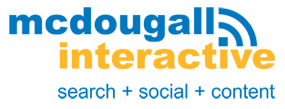 John McDougall: Hi, I’m John McDougall and welcome to the Authority Marketing Roadmap. Today my guest is Ken Lizotte, Chief Imaginative Officer at Emerson Consulting Group where he helps turn professionals into thought leaders.
John McDougall: Hi, I’m John McDougall and welcome to the Authority Marketing Roadmap. Today my guest is Ken Lizotte, Chief Imaginative Officer at Emerson Consulting Group where he helps turn professionals into thought leaders.
A thought leader in his own right, Ken is the author of The Expert’s Edge and The Speaker’s Edge. Welcome Ken.
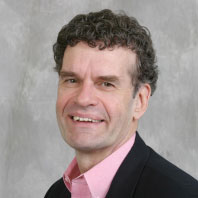 Ken Lizotte: Well, thank you. I’m glad to be here, John.
Ken Lizotte: Well, thank you. I’m glad to be here, John.
Why Speaking to Groups Is Important
 John: Yes, absolutely. And why is speaking to groups so important and how can it help us build our businesses?
John: Yes, absolutely. And why is speaking to groups so important and how can it help us build our businesses?
 Ken: I think there’s nothing like getting right out there in front of real live human beings and being able to make an impact on them so that they understand what’s inside of you and what needs to get out. What your expertise is all about. Your products, your services, etc.
Ken: I think there’s nothing like getting right out there in front of real live human beings and being able to make an impact on them so that they understand what’s inside of you and what needs to get out. What your expertise is all about. Your products, your services, etc.
You know, many, many years ago, decades ago, literally, there was a best-selling book called, Megatrends, and a guy named John Naisbitt had written it. At the time, with TV running so strong – this is the 70s if I recall exactly when this was. [Editor: Megatrends was published in 1982]
There were predictions that we would stop going to the movies. And this is like 40 years later with on-demand and Internet entertainment and all of that, one would – first of all, wonder why it hasn’t happened already – but still make that prediction.
But he said that will never happen because it’s very important, no matter what the technology, for human beings to be with other human beings. So that’s the impact of speaking, and webinars can do it and blogging and social media can do it, but there’s nothing like human beings being in the same room with each other, like I’m here with you.
 John: Absolutely, it makes a difference. We were going to do this over the phone and you came in person and we were just saying how it deepens the relationship and your connections.
John: Absolutely, it makes a difference. We were going to do this over the phone and you came in person and we were just saying how it deepens the relationship and your connections.
 Ken: Yes, absolutely, yes.
Ken: Yes, absolutely, yes.
How to Find and Obtain Speaking Engagements
 John: In your new book, The Speaker’s Edge, you explain how we can all locate and obtain lots of speaking engagements. What are the primary avenues for doing that?
John: In your new book, The Speaker’s Edge, you explain how we can all locate and obtain lots of speaking engagements. What are the primary avenues for doing that?
 Ken: Well, the primary avenues are – they seem pretty obvious when I say them – the formal or the informal.
Ken: Well, the primary avenues are – they seem pretty obvious when I say them – the formal or the informal.
So the formal is, say that you targeted some conferences, big conferences or business events that you would love to speak at. They generally require you to make a formal presentation, or rather a proposal, and that takes place typically online and there’s a form to fill out and if you’ve filled out a lot of these, you’ll find that they’re all different, but you’ve got to spend some time making a formal proposal for yourself.
The other is the informal, and that’s when we might know somebody who is always looking for speakers for a group that we’ve been involved in, or we ask around our friends and our colleagues if they know about some groups that are looking for speakers, and that sort of thing.
Those things can just happen. I actually was at what’s called a launch party for a client of mine who’s got a new book out the other night and one of the people who was attending works for a company called Fitbit. Everybody I think has heard of Fitbit because it’s really getting very, very popular and very strong and does a lot of commercials on TV and all.
Anyway, she said she works in the Fitbit office in Boston and they often bring in speakers and just by being there without planning it at all, she was impressed with the book and impressed with my client, the new author, and she told him that she would try to see if he can be brought into Fitbit to do some speaking in-house there.
So that’s the informal. The formal. And those are the two major ways that one goes about looking for speaking engagements.
 John: Okay. What about – have you heard of the Association Executives, the big master book of all the meeting planners?
John: Okay. What about – have you heard of the Association Executives, the big master book of all the meeting planners?
 Ken: Yes.
Ken: Yes.
 John: I bought a copy of that a ways back and man, that thing is massive.
John: I bought a copy of that a ways back and man, that thing is massive.
 Ken: It’s overwhelming. It’s so complete. Yes. That’s the directory of trade and professional associations. There’s one for the national association. There is one for states. State by state. It’s also got an online version. I think it called –
Ken: It’s overwhelming. It’s so complete. Yes. That’s the directory of trade and professional associations. There’s one for the national association. There is one for states. State by state. It’s also got an online version. I think it called –
 John: — TheAssociationOfExecutives.com or something like that. [Editor: https://www.associationexecs.com/]
John: — TheAssociationOfExecutives.com or something like that. [Editor: https://www.associationexecs.com/]
 Ken: Yes, that’s what it is, yes. They got an online version as well, which is probably going to become the main version, but that’s how you would do your research. You would go to a resource like that to find national organizations, conventions, events, expos, things like that. And what you want to do, if you’re in business, is to look for those that are going to have the target audience that represents your market that you want to speak to, and you can find what looks like the right match, that’s when you’d go on their website and make a formal proposal.
Ken: Yes, that’s what it is, yes. They got an online version as well, which is probably going to become the main version, but that’s how you would do your research. You would go to a resource like that to find national organizations, conventions, events, expos, things like that. And what you want to do, if you’re in business, is to look for those that are going to have the target audience that represents your market that you want to speak to, and you can find what looks like the right match, that’s when you’d go on their website and make a formal proposal.
 John: Yeah, it’s amazing — there’s a group for everything, albino mini horses, you know, it’s everything.
John: Yeah, it’s amazing — there’s a group for everything, albino mini horses, you know, it’s everything.
 Ken: I spoke a few years ago at an annual convention. I think it’s called The New England Mystery Writers, or Mystery Novelists, or something like that. There were probably three or four hundred people at this meeting at a hotel in, I believe it was in Dedham, Massachusetts, and the atmosphere was so high-spirited. People who are writing mystery novels were so happy to be together and I was on a panel about getting your book published, and it was just jammed. So, you just never know what kind of groupings there are.
Ken: I spoke a few years ago at an annual convention. I think it’s called The New England Mystery Writers, or Mystery Novelists, or something like that. There were probably three or four hundred people at this meeting at a hotel in, I believe it was in Dedham, Massachusetts, and the atmosphere was so high-spirited. People who are writing mystery novels were so happy to be together and I was on a panel about getting your book published, and it was just jammed. So, you just never know what kind of groupings there are.
 John: What kind of niche little group could actually turn into a great client list for you.
John: What kind of niche little group could actually turn into a great client list for you.
 Ken: Yeah, exactly.
Ken: Yeah, exactly.
Keynotes Aren’t Everything
 John: And, you say in your book that keynotes aren’t everything, that people mistakenly presume that a keynote is always the prize to shoot for. How is that a mistake?
John: And, you say in your book that keynotes aren’t everything, that people mistakenly presume that a keynote is always the prize to shoot for. How is that a mistake?
 Ken: Well, it’s not a mistake to shoot for it. It’s a mistake to overlook all the other possibilities in terms of speaking. There aren’t that many keynote spots, obviously. Usually a conference has one keynoter, maybe two if it’s really large. So, you really limit yourself if you assume that being the keynote, being the star of the show, is the only way you really can get enough attention.
Ken: Well, it’s not a mistake to shoot for it. It’s a mistake to overlook all the other possibilities in terms of speaking. There aren’t that many keynote spots, obviously. Usually a conference has one keynoter, maybe two if it’s really large. So, you really limit yourself if you assume that being the keynote, being the star of the show, is the only way you really can get enough attention.
For example, I just mentioned this New England Mystery Writers group — I was on a panel. As I said, the room was jammed. So, you’re going to get a chance to display your expertise and to make comments and offer your opinions and insights in a way that’s going to get the attention of the right audience.
So, overlooking the fact that you don’t have to be a keynote is important so you don’t just spend your time spinning your wheels, and maybe you’re lucky to get one keynote a year and that becomes the only speaking engagement that you get.
Other Mistakes When Looking for Speaking Engagements
 John: Are there other mistakes that people make when looking for speaking gigs, and also when actually speaking? In other words, what will work against you in terms of building your chances of speaking frequently?
John: Are there other mistakes that people make when looking for speaking gigs, and also when actually speaking? In other words, what will work against you in terms of building your chances of speaking frequently?
 Ken: Well, the biggest thing that I learned when I did research for the book and talked to event planners, in particular, is trying to sell yourself on stage. Trying to sell your services, or a product you have, or a book you have, or whatever.
Ken: Well, the biggest thing that I learned when I did research for the book and talked to event planners, in particular, is trying to sell yourself on stage. Trying to sell your services, or a product you have, or a book you have, or whatever.
Get up there, and give your audience the best of your knowledge, the best of your insight, answer questions in the Q&A period, be giving. That is important. As soon as you shift into a sales person, rep, whatever, you start to lose your audience and you lose the event planner’s recommendation.
The event planner will then say, “I will never have this person here again, and I will never recommend this speaker to anyone else.” So, don’t try to sell yourself. I once saw a very, very, stark display of that at the CEO Club of Boston, which typically will bring in two speakers every other month here in the Boston area.
Of all things, there was a speaker whose expertise was, how to get past the gate keepers in order to sell to – what do you call it – VIPs. Very Important Persons in a company; high level, C level executives, the CEO, the highest executives. And this guy knew what he was talking about, and he had written a few books on the subject, and he was giving great advice and great information and all of that.
At the end of his talk though, he shifted. He pointed over to a table behind him where he had all his books and his tapes lined up and he said, “I just want you to know, that I’ve brought books and tapes for sale here for you, and if you act now, for a three hundred dollar set of tapes or some books, I can give you guys some special CEO-club price of $259 and then if you want the other package–” and he went on and on like this in the hall and then he waited — he waited for somebody to say, “That sounds great. Yeah I’ll take one,” and no one did. It was amazing.
 John: Awkward, the way it was presented.
John: Awkward, the way it was presented.
 Ken: Oh, one guy did raise his hand and said “I’ll take one.” And you had the feeling that this guy felt sorry for the speaker and was willing to buy this just because it was an awkward moment. You know the irony was this was an expert on selling and he did this, and I talked with the director of the club later and he said to me “Yeah that was bad.”
Ken: Oh, one guy did raise his hand and said “I’ll take one.” And you had the feeling that this guy felt sorry for the speaker and was willing to buy this just because it was an awkward moment. You know the irony was this was an expert on selling and he did this, and I talked with the director of the club later and he said to me “Yeah that was bad.”
 John: But at the same time there is a whole audience of people, Dan Kennedy for example, has quite a routine of managing to sell quite an incredible amount of stuff from the back of the room so there’s a way to do it and build up in your talk this excitement of what you do and then have that available, but how you do it, you have to be — if you give a walking sales speech the whole time, that is just…
John: But at the same time there is a whole audience of people, Dan Kennedy for example, has quite a routine of managing to sell quite an incredible amount of stuff from the back of the room so there’s a way to do it and build up in your talk this excitement of what you do and then have that available, but how you do it, you have to be — if you give a walking sales speech the whole time, that is just…
 Ken: That just turns it off, I don’t know personally how Dan Kennedy — I know who you’re talking about but I don’t know how he does it — but I certainly can believe that there’s some people who have learned how to sort of integrate it and to do it subtly and this and that. But if it’s blatant, and if it feels as though all the speaker — you the speaker — are here to do is to sell me in the audience, I’m gone as an audience member and that’s blowing it.
Ken: That just turns it off, I don’t know personally how Dan Kennedy — I know who you’re talking about but I don’t know how he does it — but I certainly can believe that there’s some people who have learned how to sort of integrate it and to do it subtly and this and that. But if it’s blatant, and if it feels as though all the speaker — you the speaker — are here to do is to sell me in the audience, I’m gone as an audience member and that’s blowing it.
And see, the important thing about that point is that when you are asked the — if you are asked the other question which is how do you get — what’s the best way for one to get more and more speaking engagements? Because that’s the focus of my book, how to land lots of speaking engagements. The way to do it when it really came down to it in terms of what the experts had to tell me was go out and speak, speak as well as possible, deliver a great a presentation as possible, just be there and do your thing on stage, not sell yourself. Just give of yourself and be good at it.
Practice, practice, practice so you’ll be a better speaker and what will happen then is someone in the audience perhaps might see you and come up after or contact you later and say, “You know I saw you give your talk, and it was fantastic, and I actually know of a group and I am part of a group that needs someone to give a similar talk and would you be interested”? That’s what will sell yourself.
The More You Speak, the More Engagements You Will Get
 John: So some of the best ways to get more speaking gigs is to just do as many as you can in a sense?
John: So some of the best ways to get more speaking gigs is to just do as many as you can in a sense?
 Ken: Yes. The more you speak, the more likely you are to get more speaking engagement. That’s what the experts who are successful at it tell me.
Ken: Yes. The more you speak, the more likely you are to get more speaking engagement. That’s what the experts who are successful at it tell me.
 John: At the same time if, from that advice, you then go and say, “Okay I’m going to speak always for free, does that also, maybe in a way, shoot yourself in the foot because some experts say you should put on your website a minimum $5000 speaking fee to let people know you are of some stature and then you hope that they say, “Oh geez, we don’t have $5000 but we have $500.” What do you think of that whole routine or game or whatever you want to call it?
John: At the same time if, from that advice, you then go and say, “Okay I’m going to speak always for free, does that also, maybe in a way, shoot yourself in the foot because some experts say you should put on your website a minimum $5000 speaking fee to let people know you are of some stature and then you hope that they say, “Oh geez, we don’t have $5000 but we have $500.” What do you think of that whole routine or game or whatever you want to call it?
 Ken: Well it depends on what your goal is. Now there are a lot of good reasons to speak pro bono, and two of them are, one, if there’s some sort of charitable event or some sort of group that’s a good cause where you know they can’t afford to pay you but you would be in front of maybe a very influential audience that could lead to business at some point.
Ken: Well it depends on what your goal is. Now there are a lot of good reasons to speak pro bono, and two of them are, one, if there’s some sort of charitable event or some sort of group that’s a good cause where you know they can’t afford to pay you but you would be in front of maybe a very influential audience that could lead to business at some point.
The other is if it’s a target audience of yours that really, again there are potential prospects, and you could even see the point of, for example, paying your own way to fly to an event somewhere else and pay your own expenses and your accommodations and all. If it was quite possible that that was — if it was likely that that was a good match.
But having said that, what you are alluding to is very significant thing to do also and that’s to set a certain value for yourself, whether it’s $5000 or $8000 or $10000 or whatever so that you can then negotiate it down. I, for example, once gave a talk at a conference in Washington D.C that was on the topic of diversity in business, and I have to confess to everybody that at the time in my career when I gave the talk, I was not a diversity expert but what this was, was that there were a number of speakers already on the agenda. There were about eight speakers on the agenda and they represented all sorts of the diversity spectrum. There were people who were black, there were people who were Hispanic, people who were gay, there were Native Americans, etc., and I happened to run into the conference organizer and he said to me, “You know what I don’t have; I don’t have a white guy.”
 John: [Laughs] You were the minority.
John: [Laughs] You were the minority.
 Ken: Yes. I said well, I could do that. So I put a proposal together for him and my topic, I called it Workplace Diversity: What’s In It for White Guys, and he said, “okay”. He brought me down there and I looked at the other speakers and they really were diversity experts and when it was all over, I was curious about the fee that I got because I did give them a proposal and it did have a fee structure on there and they did decide to give me a fee. It wasn’t a whole ton of money — to be frank, it was years ago and it was $1500, but they did agree to it and paid expenses and all that.
Ken: Yes. I said well, I could do that. So I put a proposal together for him and my topic, I called it Workplace Diversity: What’s In It for White Guys, and he said, “okay”. He brought me down there and I looked at the other speakers and they really were diversity experts and when it was all over, I was curious about the fee that I got because I did give them a proposal and it did have a fee structure on there and they did decide to give me a fee. It wasn’t a whole ton of money — to be frank, it was years ago and it was $1500, but they did agree to it and paid expenses and all that.
When it was all over I asked them about that and said, “I’m just kind of curious, where did my fee stack up against the other speakers?” Take this note; there were two keynoters at that particular event. They said, “Well, you are number two behind one of the keynoters.” I said, “Wait a minute, one of the keynoters got less than I did?” “Oh, yeah, sure.” “And what did some of these other people get?” because they seemed like quite strong…
 John: Knowledgeable, professional crowd.
John: Knowledgeable, professional crowd.
 Ken: Yes, well, some got maybe $500 and others didn’t get anything. I said, “What was the difference?” They said, “You asked for it.” That’s all it was. “You asked for it”. So, put it out there but do know — again the premise of your question is important to keep in mind — don’t be rigid about it, put it out there. Let the person say it’s good or that’s fine or let them say, “Well I don’t know if we can afford that,” and then start to try negotiate it down. You might still end up with a fee that’s a good one for you.
Ken: Yes, well, some got maybe $500 and others didn’t get anything. I said, “What was the difference?” They said, “You asked for it.” That’s all it was. “You asked for it”. So, put it out there but do know — again the premise of your question is important to keep in mind — don’t be rigid about it, put it out there. Let the person say it’s good or that’s fine or let them say, “Well I don’t know if we can afford that,” and then start to try negotiate it down. You might still end up with a fee that’s a good one for you.
Publishing a Book Helps Get Speaking Gigs
 John: Absolutely. You and I share a similar philosophy about how businesses can stand out from the competition, specifically by offering a book among other tactics. How useful is publishing a book in the search for speaking gigs?
John: Absolutely. You and I share a similar philosophy about how businesses can stand out from the competition, specifically by offering a book among other tactics. How useful is publishing a book in the search for speaking gigs?
 Ken: I think it’s really important. I don’t think you’d never get to speak without one but I think it’s really important partly because of what happens. Not only that a lot of event planners want to see a book, that you are an author of a book, it doesn’t have to be a best seller but they give you certain credibility with that. Also, I think your audience gives you credibility.
Ken: I think it’s really important. I don’t think you’d never get to speak without one but I think it’s really important partly because of what happens. Not only that a lot of event planners want to see a book, that you are an author of a book, it doesn’t have to be a best seller but they give you certain credibility with that. Also, I think your audience gives you credibility.
Once again, if you think about what a speaker is like that does not have a book. Typically we will see speakers with diagrams or PowerPoint or whatever it might be and they don’t particularly have — they might have some handouts and they are not even published articles, they are just handouts, they’re handouts of the PowerPoints or they promise to email you those the next day or whatever. There’s just nothing like having a book for the credibility, that you really are an expert or a thought leader or guru. You really stand out from the crowd, even of public speakers.
 John: We were joking earlier, if you want to show off your book a little bit then have some weight to it. You kind of drop it on the table when you come into a meeting.
John: We were joking earlier, if you want to show off your book a little bit then have some weight to it. You kind of drop it on the table when you come into a meeting.
 Ken: That’s the way your book is. You drop it on the table and…but I noticed there’s nothing on the pages inside. [Laughs]
Ken: That’s the way your book is. You drop it on the table and…but I noticed there’s nothing on the pages inside. [Laughs]
Does the Size of the Book Matter?
 John: I did get a book like that once, but they did that on purpose. Someone has told me there’s some philosophy around the size of your book, not necessarily the volume or the decibels when you drop it on the table but the size of your book matters, the length of it, when you are getting a speaking gig in terms of the amount of fee that you get. Do people take a more comprehensive book more seriously or what’s the rule of thumb, or does any book help you get [speaking engagements]?
John: I did get a book like that once, but they did that on purpose. Someone has told me there’s some philosophy around the size of your book, not necessarily the volume or the decibels when you drop it on the table but the size of your book matters, the length of it, when you are getting a speaking gig in terms of the amount of fee that you get. Do people take a more comprehensive book more seriously or what’s the rule of thumb, or does any book help you get [speaking engagements]?
 Ken: I think it depends. I think it’s always the topic, when you get down to it. Or if you are a really big name like Malcolm Gladwell or something, then that will always draw but below that upper tier, I think it’s the topic, I think what matters is the topic. Remember two of the biggest, best-selling books of all time had almost no words in them. One was called Who Moved My Cheese and another was called, before that, The One Minute Manager. So those are thin books, both of them, but the authors who did those are still in the speaking circuit many years later.
Ken: I think it depends. I think it’s always the topic, when you get down to it. Or if you are a really big name like Malcolm Gladwell or something, then that will always draw but below that upper tier, I think it’s the topic, I think what matters is the topic. Remember two of the biggest, best-selling books of all time had almost no words in them. One was called Who Moved My Cheese and another was called, before that, The One Minute Manager. So those are thin books, both of them, but the authors who did those are still in the speaking circuit many years later.
 John: Yes. Those are actually great examples; I had, way back, the cassette tapes of Who Moved My Cheese. My father got it and he just turned us all on to it; and that was short.
John: Yes. Those are actually great examples; I had, way back, the cassette tapes of Who Moved My Cheese. My father got it and he just turned us all on to it; and that was short.
 Ken: Well look at that, the cassette tape, yes. So that’s how it gets expanded. I don’t know how much the size of a book is important, but certainly the topic is going to be important, and it’s not just the topic because it can’t be a dry topic, it needs to have a certain pizzazz to it, or panache or flair; so that helps as well.
Ken: Well look at that, the cassette tape, yes. So that’s how it gets expanded. I don’t know how much the size of a book is important, but certainly the topic is going to be important, and it’s not just the topic because it can’t be a dry topic, it needs to have a certain pizzazz to it, or panache or flair; so that helps as well.
Other Important Steps to Win Speaking Engagements
 John: What else is important? Your book includes a checklist of essential items for ensuring you’re fully equipped to search, find and win lots of speaking engagements.
John: What else is important? Your book includes a checklist of essential items for ensuring you’re fully equipped to search, find and win lots of speaking engagements.
 Ken: There are a number of items on my list — the one that pops out at me is, you asked the question, a video. It used to be, years ago, that if we were on a program planning committee, if some speaker’s name came up somebody might say, “Woah, is there any chance we could go see him or her speak?”
Ken: There are a number of items on my list — the one that pops out at me is, you asked the question, a video. It used to be, years ago, that if we were on a program planning committee, if some speaker’s name came up somebody might say, “Woah, is there any chance we could go see him or her speak?”
 John: And you go in person. There was no YouTube.
John: And you go in person. There was no YouTube.
 Ken: Yes. It sounds incredibly archaic now, but now we can go on a website and we can see a one-, two-, three-minute, fifteen-minute or whatever, video, and we can get a sense. Not everybody has that, but it’s a good idea to have that, so that’s really important.
Ken: Yes. It sounds incredibly archaic now, but now we can go on a website and we can see a one-, two-, three-minute, fifteen-minute or whatever, video, and we can get a sense. Not everybody has that, but it’s a good idea to have that, so that’s really important.
I put a book on the list, having a book. Again, I think that’s very important. I think there’s also something I have in my book, The Speaker’s Edge, that I call an “info sheet”, and if you’re really going to do a diligent search for speaking engagements, this info sheet is something that you could use so that before you start, you can have, right in front of you, all the various information that you might be asked for, so you don’t have to start from scratch every time you’re filling out a formal proposal.
You wouldn’t be asked for all of it because they all are variations of each other, but I found it really helpful to have everything comprehensively in front of you, so you just copy and paste and that would make the filling out of the formal proposals go a lot faster.
 John: Much quicker, yes. And you have to be somewhat rigorous about finding gigs, you have to maybe, several or ten times a month fill out these forms, or how often do you recommend your clients to pursue it?
John: Much quicker, yes. And you have to be somewhat rigorous about finding gigs, you have to maybe, several or ten times a month fill out these forms, or how often do you recommend your clients to pursue it?
 Ken: It’s funny because we were talking about a book being important. You and I know both know that doing a book means hiding out or squirreling your time away or carving out time, this kind of thing. Looking for speaking engagements is similar, you’re going to have to carve out some time, discipline yourself and set aside a certain amount of time. It’s not necessarily fun, but you can embrace it and try to make it fun.
Ken: It’s funny because we were talking about a book being important. You and I know both know that doing a book means hiding out or squirreling your time away or carving out time, this kind of thing. Looking for speaking engagements is similar, you’re going to have to carve out some time, discipline yourself and set aside a certain amount of time. It’s not necessarily fun, but you can embrace it and try to make it fun.
The other way to do it through the informal method is to integrate it as much as you can in your day to day actions. You could, for example, get an email from somebody about something or other, and it occurs to you that that person maybe does a lot of speaking and you might say to them in an email, “By the way, I’m trying to do more speaking right now and I’m looking for executive groups to speak to, would you have any suggestions?”
How long would it take to bang out that question on your email? So you could do that; having lunch with somebody, maybe it would come up. I don’t mean bug everybody at every chance you get, but keep it in mind. This is a fair question to ask and you’d be willing to do the same for that person as well. So integrate it, in other words, with your normal networking.
The One Thing People Can Do To Get Speaking Engagements
 John: When all is said and done, what is the one thing that people can do to locate and land lots of speaking engagements?
John: When all is said and done, what is the one thing that people can do to locate and land lots of speaking engagements?
 Ken: I think we’ve already discussed it. I think that it really is, go out and speak; try to do the best you can, don’t try to sell yourself blatantly, shamelessly on there. And then maybe the last piece, though, that we haven’t discussed is the follow-up. A big mistake a lot of speakers make is to just, no matter how great they do it, to get off the stage and cross their fingers that somebody in the audience will come to them, “I’ve done everything I can.” Well no you haven’t done everything you can.
Ken: I think we’ve already discussed it. I think that it really is, go out and speak; try to do the best you can, don’t try to sell yourself blatantly, shamelessly on there. And then maybe the last piece, though, that we haven’t discussed is the follow-up. A big mistake a lot of speakers make is to just, no matter how great they do it, to get off the stage and cross their fingers that somebody in the audience will come to them, “I’ve done everything I can.” Well no you haven’t done everything you can.
Try to get all the business cards from the audience that you can, maybe raffling off a book is one way to do it, and then send a follow-up email to everyone thanking them and saying you appreciated their coming to listen to you. And then put them on an email list. Now I didn’t really talk about that but again that’s one of the follow-up techniques you should have.
You should build an email list adding any audience that you speak to and then sending something out from time to time that will be a reminder, in some way, of the expertise that you have. That way you stay in contact with them over time; and too many speakers, it seems to me, just don’t bother to do this, and I think it’s kind of like getting off the stage and saying, “Well we had a good time today that’s the last we’re going to see of each other so good luck everybody.”
And I think that’s a mistake. But that’s a way to extend of what we might call your speaking community, or a fellowship is what I used to call it in the book, and stay in contact. So that they’re going to be able to come to you, invite you to do a speaking gig sometime in the future when the time comes for them to have that occasion to come to you. Don’t become a speaker that was great that I saw two years ago or three years ago and I can’t remember the name of the person anymore.
 John: Yes, I like the insights of the people that just saw you speak, to pitch to them. They just saw you speak, if they were happy, a good audience…
John: Yes, I like the insights of the people that just saw you speak, to pitch to them. They just saw you speak, if they were happy, a good audience…
 Ken: Yes exactly, make sure that it’s more than just a one-time gig with all those people.
Ken: Yes exactly, make sure that it’s more than just a one-time gig with all those people.
 John: Absolutely, thanks for speaking to us today, Ken.
John: Absolutely, thanks for speaking to us today, Ken.
 Ken: Great, this is a speaking engagement too, for me, you know.
Ken: Great, this is a speaking engagement too, for me, you know.
 John: Yes, absolutely, a podcast.
John: Yes, absolutely, a podcast.
 Ken: That’s actually that’s the last thing I would say is that when we were talking earlier about keynotes, and don’t forget, the panels, as we said earlier, can be a speaking engagement. Don’t forget that what they call breakout sessions can be a speaking engagement. And frankly, those dreaded elevator speeches that we’re asked to do frequently at networking events, if you create the best elevator 20-, 30-second elevator pitch that you can create — and by the way I have a great exercise in the book that will help people do that — those 30 seconds could be the most impactful speaking engagement you’ve ever done if you do those right. So there’s always an opportunity for doing speaking engagements, not necessarily the star of the show.
Ken: That’s actually that’s the last thing I would say is that when we were talking earlier about keynotes, and don’t forget, the panels, as we said earlier, can be a speaking engagement. Don’t forget that what they call breakout sessions can be a speaking engagement. And frankly, those dreaded elevator speeches that we’re asked to do frequently at networking events, if you create the best elevator 20-, 30-second elevator pitch that you can create — and by the way I have a great exercise in the book that will help people do that — those 30 seconds could be the most impactful speaking engagement you’ve ever done if you do those right. So there’s always an opportunity for doing speaking engagements, not necessarily the star of the show.
 John: Great and tell us how people can get in touch with you, what’s your website address?
John: Great and tell us how people can get in touch with you, what’s your website address?
 Ken: So my website address is thoughtleading.com, that’s T-H-O-U-G-H-T, thought as in thinking, L-E-A-D-I-N-G, leading as in leadership, thoughtleading, it’s one word, dot com. This is the way I have to say it when I’m on the phone with Comcast, thoughtleading.com, they can find me.
Ken: So my website address is thoughtleading.com, that’s T-H-O-U-G-H-T, thought as in thinking, L-E-A-D-I-N-G, leading as in leadership, thoughtleading, it’s one word, dot com. This is the way I have to say it when I’m on the phone with Comcast, thoughtleading.com, they can find me.
 John: No dashes, that’s good.
John: No dashes, that’s good.
 Ken: No dashes, no underscores, nothing else.
Ken: No dashes, no underscores, nothing else.
 John: Okay, I hope you enjoyed today’s discussion. Check out workingdemosite.com/authority for more interviews and information on Authority Marketing and review us on iTunes and Stitcher. I’m John McDougall — see you next time on the Authority Marketing Roadmap.
John: Okay, I hope you enjoyed today’s discussion. Check out workingdemosite.com/authority for more interviews and information on Authority Marketing and review us on iTunes and Stitcher. I’m John McDougall — see you next time on the Authority Marketing Roadmap.

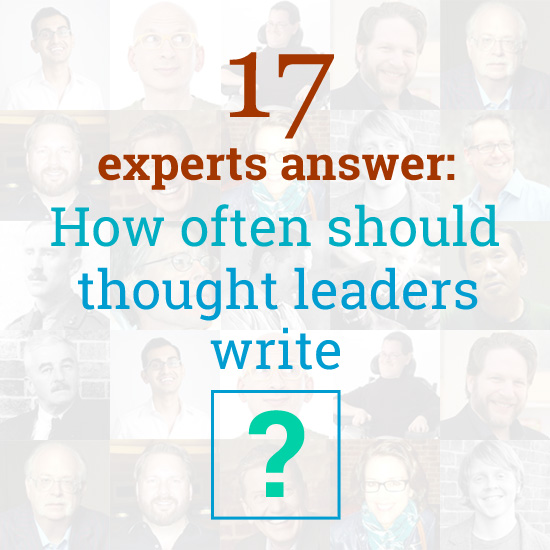
 Neil Patel is an outrageously prolific writer and CEO of at least 2 very successful companies. Below is his 2015 schedule:
Neil Patel is an outrageously prolific writer and CEO of at least 2 very successful companies. Below is his 2015 schedule: Seth Godin is one of the world’s top bloggers and marketers. As you can see, his level of commitment is clear:
Seth Godin is one of the world’s top bloggers and marketers. As you can see, his level of commitment is clear: I’m kind of Jon Morrow obsessed right now and I am taking his blogging classes. Jon wrote a single post that got over a million views! Here’s how he got good:
I’m kind of Jon Morrow obsessed right now and I am taking his blogging classes. Jon wrote a single post that got over a million views! Here’s how he got good: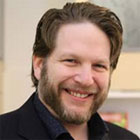 And here’s how Chris Brogan, one of team most famous social media experts of all time, originally built his writing muscles:
And here’s how Chris Brogan, one of team most famous social media experts of all time, originally built his writing muscles: Dan is one of the highest paid copywriters in the world.
Dan is one of the highest paid copywriters in the world.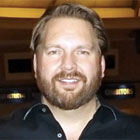 Lee has been named #15 of top 100 online marketers and runs one of the top content marketing blogs in the word.
Lee has been named #15 of top 100 online marketers and runs one of the top content marketing blogs in the word. Michael is famous for helping people understand they need a platform, like a blog and email list, if they want to sell more books and get more leads.
Michael is famous for helping people understand they need a platform, like a blog and email list, if they want to sell more books and get more leads. Ann co-founded ClickZ.com, is a best selling author, writes for Entrepreneur magazine, is Chief Content Officer at MarketingProfs and is a top 20 women blogger. Hardly a resume that comes from chilling on the couch.
Ann co-founded ClickZ.com, is a best selling author, writes for Entrepreneur magazine, is Chief Content Officer at MarketingProfs and is a top 20 women blogger. Hardly a resume that comes from chilling on the couch. Jeff built a blog of over 100,000 readers in two years and writes daily from faith and the heart.
Jeff built a blog of over 100,000 readers in two years and writes daily from faith and the heart.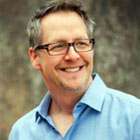 Bryan Clark, is CEO of Rainmaker Digital and founder of Copyblogger.
Bryan Clark, is CEO of Rainmaker Digital and founder of Copyblogger.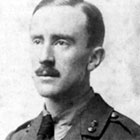 Some people write a novel in a few months and for others it takes over a decade of consistent writing.
Some people write a novel in a few months and for others it takes over a decade of consistent writing. Stephen King writes 2,000 words a day and says:
Stephen King writes 2,000 words a day and says:
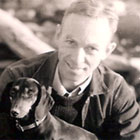

 Maya Angelou shares her process:
Maya Angelou shares her process:
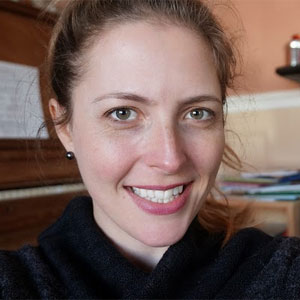 Christa Terry: Thank you very much, I’m glad to be here.
Christa Terry: Thank you very much, I’m glad to be here.